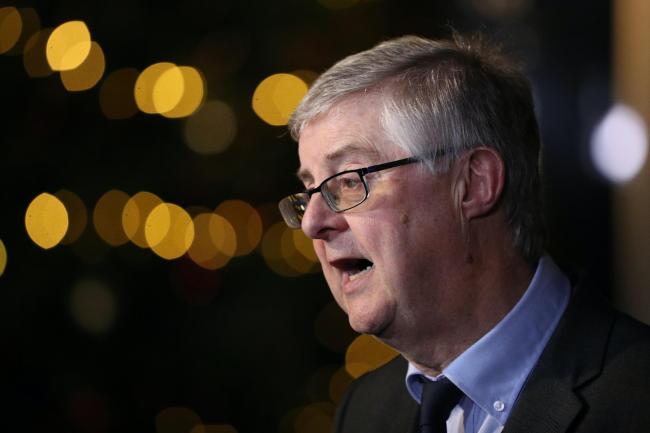WALES is facing an economic ordeal with First Minister Mark Drakeford sounding the alarm that the current predicament is “the most formidable since devolution.” In a resolute move, Drakeford has called for action to address a staggering £900 million deficit in the country’s £20 billion budget. He points the finger at “record levels of inflation,” attributing them to the “mismanagement of the economy and public finances” by successive UK governments spanning the last 13 years.
The gravity of the situation is exacerbated by the current economic landscape. With UK interest rates scaling a 15-year peak of 5.25%, the financial pressures are manifold. The inflation rate, a barometer of the cost of living, has surged to 7.9% (compared to June’s figures), albeit slightly lower than the preceding month’s 8.7%. This surge, however, remains well above the historical average of 2.79%.
The looming 2023-2024 budget is shrouded in uncertainty, with the specific sectors to bear the brunt of potential budget cuts yet to be unveiled. Nevertheless, Drakeford remains steadfast in his commitment to shielding frontline public services “as far as possible” and focusing support on the most vulnerable segments of the population.
In a comprehensive statement, Drakeford underscored, “Even after doing all that our financial position after the UK Spring Budget in March was up to £900m lower in real terms than when that budget was set by the UK Government at the time of the last spending review in 2021. This is the toughest financial situation we have faced since devolution.”
As expected, responses to this call have been mixed. The UK Government’s retort underscored the Welsh Government’s access to the “largest funding settlement in the history of devolution,” amounting to a staggering £18 billion annually, with continuous increments in real terms within the 2021 Spending Review period.
Nesta Lloyd-Jones, Assistant Director of the Welsh NHS Confederation, hailed the transparency of the Welsh Government in acknowledging the fiscal tribulations, particularly as they relate to the NHS. Her statement highlighted the multifaceted challenges that NHS organisations across Wales confront, ranging from pandemic-induced expenditures to soaring energy costs and elevated expenses tied to staff recruitment and retention.
While Welsh Labour’s pronouncement garnered some support, it also faced criticism. Welsh Conservative leader Andrew RT Davies accused the Labour Government of compounding its issues through ideological pursuits, pointing out instances where unspent funds were returned to the UK Treasury.
Echoing these sentiments, Welsh Conservative Shadow Finance Minister Peter Fox MS reaffirmed the party’s focus on judiciously channelling funds to critical sectors like the NHS and education. This echoed concerns over the efficiency of financial allocation by the Labour Government.
In the midst of this intricate financial landscape, Wales stands at a crossroads, necessitating resolute decisions and collaborative strategies to navigate its economic future.
















